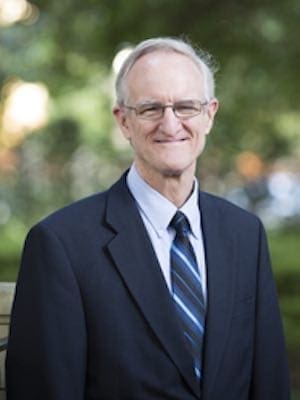I was introduced to a meeting of a rural association by a member of a church where I was doing an interim pastorate. The man told the crowd, “We are glad to have preaching to us tonight, Dr. Doug Weaver. He teaches at the college down the road. But we don’t call him doctor. We just call him Brother Doug.”
Hmm, it wasn’t exactly a ringing endorsement of ministerial education. On the other hand, Baptist life has heard much harsher indictments of the “ivory tower” and college-trained ministers.
Isaac Backus, the famous 18th century Baptist known as a hero for religious freedom, voiced a scathing assessment of the ministry of the Standing Order, the established church of colonial Massachusetts, in a tract against Joseph Fish (A Fish Caught in His Own Net, 1768).
“Whenever there is a decline in religious fervor, just look toward the college professors. They are usually the most corrupt. They are against any kind of religious experience and they graduate ministers who probably aren’t even converted. These college-trained ministers don’t preach the need for personal conversion, that’s for sure. And they don’t demand a verbal confession of faith for entrance to their church. How else are we going to maintain a regenerate church? Do you need more proof? Look at the sermons of these elitist ministers. They are dull and boring. Why these sermons are read from the pulpit and probably borrowed from the pen of someone else! You can always tell a college-trained minister. His motive for preaching is how much money he gets: ‘the worldly sum turned the scale.’ And if he needs to leave a church? He only leaves if the money is right (paraphrased).”
Such sentiments are sometimes cited for the anti-intellectual tradition of Baptist life. Indeed, such a tradition existed, and still exists. But Backus said his tirade wasn’t against ministerial education, but rather education that denounced personal religious experience of the common folk in favor of an elitist ministry. Backus’ critique was actually part of his denunciation of an established national church in favor of an ecclesiology that emphasized congregational governance and the independence of the local church.
The state-supported Standing Order, according to Backus, had abandoned the congregationalism of the Puritan founding fathers. Backus, in contrast, believed the church was a voluntary society of converted individuals in covenant together. There were to be no “pressed soldiers” in the church.
Backus’ strong congregationalism was revealed in his insistence that the church’s government rested in the people. Each member of the local church “has the right to judge.” Backus attacked the Standing Order for: 1.) having a secular head of the church; 2.) approving the ordination of ministers rather than giving this power to the local church, where it belonged according to the New Testament; and 3.) forming a ruling ministerial elite that insisted ministerial qualifications were dependent upon a certain kind of education instead of an internal call affirmed by the local church.
Revealing a strong “doctrine of the laity,” Backus said the common people, and not a group of elitist ministers, were the best judges of the daily walk of a minister. He cited I Peter on the priesthood of believers and noted that the New Testament spoke of lay people, not ministers, as priests. The common folk should follow teachers only if their teaching is correct. According to Backus, deferring to veteran experience is good in some areas of life, but not in religious matters. The common people are not owned by the ministers.
Successful congregational government of the local church was based on a healthy individualism. Backus said that the Standing Order had modeled itself after the state; they developed a hierarchical leadership and let one leader speak for the whole. In contrast, each regenerate individual in the local church had the Spirit-led ability to judge. This was a basic belief rooted in the Protestant Reformation.
Backus cited the ministry of Hezekiah Smith to illustrate freedom for individual conscience. Smith was an itinerant Baptist preacher who was told by the Standing Order not to speak publicly about his beliefs against infant baptism. He could not remain silent and be “denied liberty,” reported Backus, because believers don’t stand before the judgment as a group, they stand individually before God.
In his writings, Backus cites Enlightenment thinkers. He read them, however, through pious eyes. The focus on individual religious experience was rooted in his understanding of the Bible.
“And all the saints know that when they received Christ they had no creature to see for them, but each soul acted as singly towards God as if there had not been another person in the world.… Now if each saint is complete in him which is the Head of all wisdom and power, then they have no need of philosophers to see for them, nor of princes to give them power to act for God, but they freely confess with their mouths what they believe in their hearts, and so their hearts are comforted, being knit together in love.”
Today, the value of the individual does not need to be pitted about the value of the community. Excessive individualism and hierarchical authority should be avoided. Isaac Backus said that each individual must have a personal conversion; someone else can’t have that experience for you. And, each person stands alone before God in the judgment. Freedom for the individual, according to Backus, is biblical. At the same time, the individual is a part of a local congregation. Individuals are “knit together in love” and as a congregation follow not a secular head, but Jesus, the Head of the Body of Christ.
Baptist life has the focus in Backus on the individual and the congregation, or as we might say it, the individual in community. It is not a bad balance.
Doug Weaver is assistant professor of religion at Baylor University.

